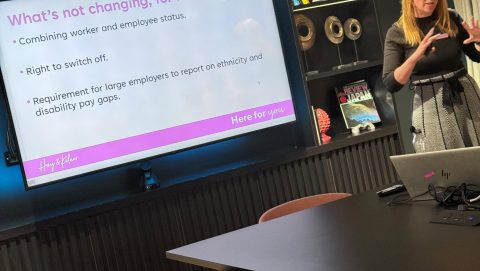
Staying alert and safe (social distancing)
Everyone’s actions have helped to reduce the transmission of coronavirus in our communities. As the UK moves to the next phase in our fight against coronavirus, the most important thing we can do is to stay alert, control the virus, and in doing so, save lives.
This guidance applies in England – people in Scotland, Wales and Northern Ireland should follow the specific rules in those parts of the UK.
The government has set out its plan to return life to as near normal as we can, for as many people as we can, as quickly and fairly as possible in order to safeguard livelihoods, but in a way that is safe and continues to protect our NHS.
As part of this plan:
- People and employers should stay safe in public spaces and workplaces by following “COVID-19 secure” guidelines. This should enable more people to go back to work, where they cannot work from home, and encourage more vulnerable children and the children of critical workers to go to school or childcare as already permitted
- You should stay alert when you leave home: washing your hands regularly, maintaining social distancing, and ensuring you do not gather in groups of more than two, except with members of your household or for other specific exceptions set out in law
- You must continue to stay home except for a limited set of reasons but – in line with scientific advice – can take part in more outdoor activities
The government has set out a roadmap for lifting further restrictions and opening more businesses and venues, but this plan is dependent on successfully controlling the spread of the virus. If the evidence shows sufficient progress is not being made in controlling the virus, then the lifting of restrictions may have to be delayed. If, after lifting restrictions, the government sees a concerning rise in the infection rate, then it may have to re-impose some restrictions in as targeted a way as possible.
This guidance explains the measures that will help you to stay alert and safe as we continue to respond to the challenges of coronavirus. Key parts of these measures are underpinned by law, which sets out clearly what you must and must not do – every person in the country must continue to comply with this. The relevant authorities, including the police, have the powers to enforce the law – including through fines and dispersing gatherings.
Find answers to the most frequently asked questions about what you should and should not do during the coronavirus outbreak on our FAQs page
- Protecting different groups of people
This guidance is for the general public who are fit and well. There is separate, specific guidance on isolation for households with a possible coronavirus infection.
Some people, including those aged 70 and over, those with specific chronic pre-existing conditions and pregnant women, are clinically vulnerable, meaning they are at higher risk of severe illness from coronavirus’. As we begin to ease restrictions, this group who are clinically vulnerable – see section 8 – should continue to take particular care to minimise contact with others outside their household.
There is a further group of people who are defined, also on medical grounds, as clinically extremely vulnerable to coronavirus – that is, people with specific serious health conditions. They are advised to continue shielding measures to keep themselves safe by staying at home and avoiding all contact with others, except for essential medical treatment or support.
- Staying at home
It is still very important that people stay home unless necessary to go out for specific reasons set out in law. These include:
for work, where you cannot work from home
going to shops that are permitted to be open – to get things like food and medicine, and to collect goods ordered online or on the phone
to exercise or spend time outdoors for recreation
any medical need, to donate blood, avoid injury or illness, escape risk of harm, or to provide care or to help a vulnerable person
Where parents or someone with parental responsibility do not live in the same household, children under 18 can be moved between their parents’ homes to continue existing arrangements for access and contact.
The government has also identified a number of critical workers whose children can still go to school or their childcare provider. This critical worker definition does not affect whether or not you can travel to work – if you are not a critical worker, you may still travel to work if you cannot work from home. However, if you, or a member of your household are unwell with symptoms of coronavirus, you should isolate and should not travel to or attend the workplace.
Critical workers and parents or guardians of vulnerable children may leave their home to take children to and from school or their childcare provider.
You can also attend the funeral of a close family member or member of your household (or, of a friend, if no one from their close family or household is attending). Religious ministers or leaders can leave their homes to go to their place of worship, but these should remain closed to the public
You may also leave or be outside of your home in order to access other critical public services, such as social services, support provided to victims, services provided by the Department for Work and Pensions, to fulfil a legal obligation, or to move home in line with the government’s guidance.
A fuller list of the reasons you can leave home is set out in the regulations.
When you do need to go out, you should follow the guidelines on staying safe outside your home. Most importantly, this includes the key advice that you should stay two metres apart from anyone outside of your household. Face coverings can help us protect each other and reduce the spread of the disease if you are in an enclosed space where social distancing isn’t possible and where you will come into contact with people you do not normally meet. This is most relevant for short periods indoors in crowded areas, for example on public transport or in some shops.
It is still not permitted to leave your house to visit friends and family in their home. The government is looking at how to facilitate greater contact with close family or friends and will explain how this can be done safely in the coming weeks.
By following this guidance, you are helping to protect yourself, your family, the NHS and your community.
Further guidance on the mental health and wellbeing aspects of coronavirus (COVID-19) has been issued.





















